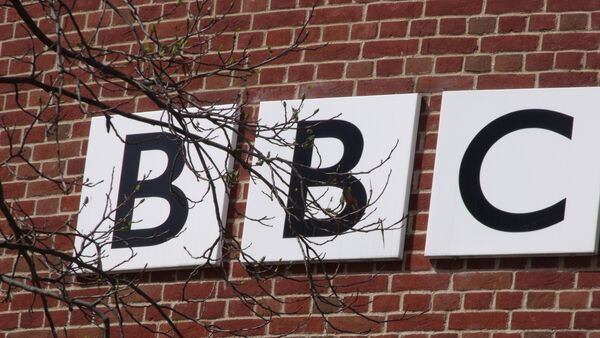EDINBURGH, December 05 (Sputnik), Mark Hirst – Conservative Party accusations that the UK’s state broadcaster, the BBC, is “biased” and broadcasts “systematic exaggeration” are a sign of desperation that the UK economy is in deep trouble, Derek Bateman, a former BBC political journalist, told Sputnik News.
“The BBC never reports without considering the government’s reaction,” Bateman said. “Correspondents know their output is monitored by aides and must reflect government policy. Criticism is usually put into the mouths of opposition sources.”
Bateman was commenting after a series of Conservative Ministers and MPs publicly accused the BBC of being biased against them, with one Conservative source telling the newspaper the Telegraph, “There have been examples in the past of bias from the BBC. But it’s when it slips into references to George Orwell and the idea of people living in penury that it becomes a real issue.”
However, Bateman highlighted that the criticism of the government’s economic strategy was not just coming from the BBC but other, normally more Conservative-friendly groups, like the Institute for Fiscal Studies (IFS) and the Financial Times (FT).
“The IFS has done so, the FT is challenging and Richard Murphy at Tax Research UK is exposing this weakness [in government policy]. The government needs the BBC to bolster its case so it's a sign of desperation that it is taking on the broadcasters,” Bateman told Sputnik.
Bateman pointed to the widespread “anti-BBC bias” protests during the Scottish independence referendum in September, which unionist parties, including the Conservatives, dismissed.
“Even the Scottish National Party didn't dare do this [complain of a BBC bias] during the independence referendum,” Bateman said.
“Unionists accusing the BBC of being biased is an ironic joke in Scotland,” Bateman added.
But John Robertson, a Professor in Media Studies at the University of the West of Scotland, said there was some basis for believing the BBC had an anti-Conservative bias.
“I think the Tories could reasonably claim the BBC has aided the growth of [anti-EU] UKIP,” Robertson told Sputnik.
“The BBC's strange fascination with UKIP is something the Tories can justifiably complain about. Based only on opinion polls and a few by-election results, they and their 'newsworthy' leader [Nigel Farage] get far more attention than they should,” Robertson added.
The academic, who had previously produced research showing a widespread anti-Scottish independence bias at BBC Scotland, told Sputnik there was “some evidence” to show the BBC had been more favorable to New Labour than the Tories.
“There is some evidence from the Blair years that BBC broadcasts would typically slightly favor New Labour over the Tories at that time,” Robertson said.
“Bear in mind however, that this was a Labour Party which had moved right and stolen the Tories' old ground to the right-of-center, especially on the economy,” Robertson added.
Robertson pointed to research by neurologists that showed there may be genuine physiological reasons why BBC journalists might be more averse to the Conservatives than other parties.
“Recognizing the research from neurologists that conservatism is more common in those whose fear centers in the lower-brain are more developed, by contrast with the tendency for those to the left of centre to be more developed in the frontal cortex area, associated with reason, the commonly well-educated BBC journalist will probably be 'naturally' averse to the more extreme groups in the Tory Party,” Robertson said.
“I think this is probably most true on issues like EU membership,” Robertson added.





